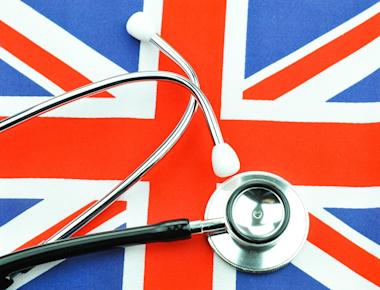What’s different with the Brazilian healthcare system is it isn’t like any of the countries we’ve gone through before. The first thing that we see that is different with Brazil is that health is a universal right under article 119 of the Brazilian Constitution. In addition to this, we can also see that Brazil has a Gini coefficient in 1991 of 0.637, wherein in Germany, the Gini coefficient was only 0.292. The Gini coefficient tells us is that the majority of the wealth in Brazil is controlled by a very small group of people.
Now let’s take a look at some of the goals of the Brazilian healthcare system. The first goal is Universal Health Access. When we look at Brazil, the country isn’t too developed, which means that there’s not a great amount of access to health care for a lot of the people living in that country. Thus, the Brazilian healthcare system is looking to expand coverage to universal access. They also want to maintain the quality of access, which means everyone has equal access to Healthcare systems and services. Lastly, they also want to expand primary care services. When we look at England and Germany, they all have primary care as the first point of access into their healthcare system, but when you look at the United States, the first point of access is generally pharmaceuticals instead of them going to primary care services. One of the ways that the Brazilian government is looking to expand primary care is through the Family Health Strategy. The Family Health Strategy is sending groups into remote areas to administer primary care services. It’s also administered by municipal governments. We can see that a lot of these countries have a similar focus on utilizing their local government to find the needs of their populace. In terms of governance, the family health strategy is ministered by municipal governments, which means that those who were part of the family health strategy know the exact needs of the populace that they’re serving.
I’m looking at the financial aspects of the Brazilian healthcare system. They spend about 9.2% of their GDP on health care and about 1282 per capita. The system right now is not in the best shape possible, with there being high rates of out-of-pocket spending, low governmental spending, and a slow rate of increase for universal health coverage. Actually, the amount of private spending covers about 50% of the total health expenditures in the country, which shows just how little the government is spending on health. However, State and municipal government spending has increased, which makes sense because of the implementation of the family health strategy. The increased funds that are being allocated for primary care lead municipal governments to expand the family health strategy, which can benefit population health.
When we last looked at England, they had a workforce shortage, and that was creating immense pressure on the system. However, in Brazil, the problem is even worse. There are about 1.8 doctors per 1,000 people in Brazil, which means they have a shortage of doctors. This has led the Brazilian government to implement the More Doctors program to get more medical professionals to help with serving the populace. The number of hospital beds actually fell between 2010 and 2015, and there are only about 2.8 consultations per capita. And 60% of out-of-pocket spending is on pharmaceuticals.
When taking an overall look at the beside healthcare system, what we see is it functions a lot like the United States healthcare system where they’re spending a lot of money on pharmaceuticals in the spending is inefficient. However, what is changing with the Brazilian healthcare system is they’re moving toward the system that models the National Health Service in England and the German healthcare system. What this means is that Brazil is moving in the right direction while at a slow pace right now, and Brazil has the potential to become an efficient, effective, and powerful healthcare force.
Sources
Corbett, A. (n.d.). Comparative Health Systems. https://www.coursera.org/learn/comparative-health-systems.
Global Health Professional
Expertise
Social Media
Subscribe to our newsletter!
Quick Links
Legal Stuff








